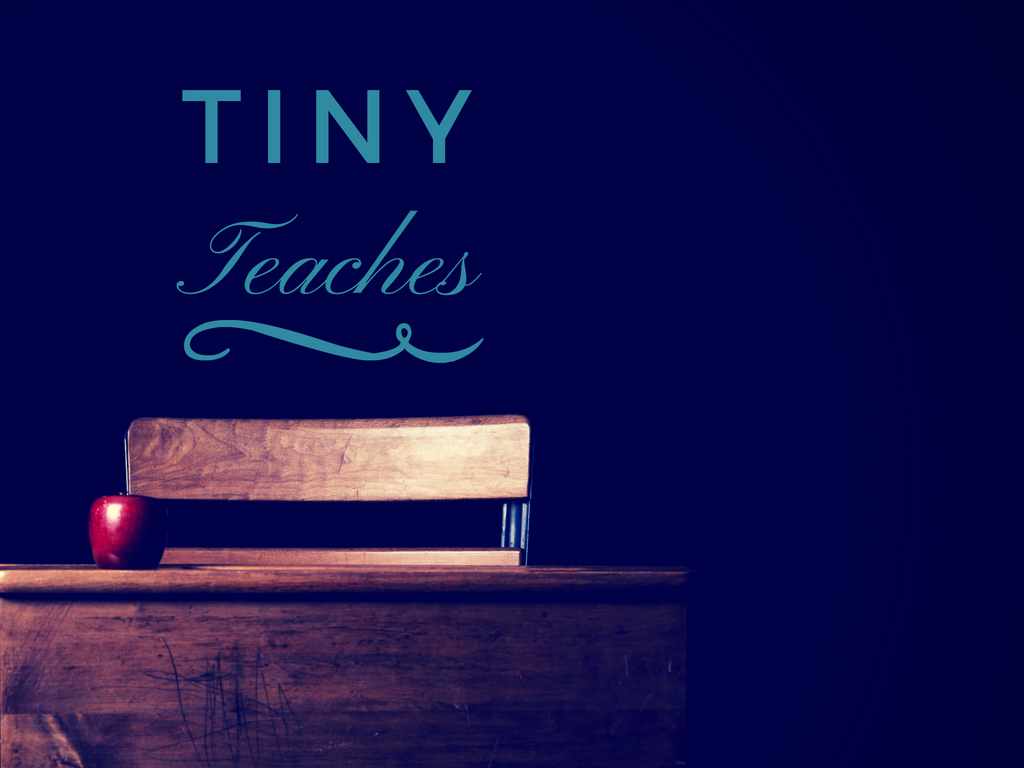Don’t be Dense. Use the Right Tense. Part 1
Whatever it is you’re writing, whether it’s a memoir, a story, or a non-fiction piece, the tense in which you write is something you need to consider. Whether you’re reading a newspaper or a novel, chances are that it’s written in past tense. It’s by far the most common tense used in writing.

Can you write in present tense? Of course. Just because past tense is the most common, that doesn’t mean it’s forbidden to do things differently.
There’s a time and place for everything. Last fall, I wrote a crash course on the basic physics and mechanics of CT scanning. It’s written in present tense because that made the most sense to me. When talking about what photons do as they exit an X-ray tube, there’s no reason to do so in past tense. The things I talked about were not events happening at some point in time, but facts and methods that are always applicable.
Whatever choice you make, and whatever genre it is you’re writing, the most important thing I want you to remember is to keep your tenses consistent. If you choose to write in the present tense, don’t switch to past tense halfway through the text.
However, for the purpose of this post, let’s focus on the use of tenses in fiction writing.
Lets Get to Work
It comes down to this basic choice: will you write your story or novel in present tense or past tense? Writing in present tense is not often done in genre novels. In literary novels, it’s a bit more common. Does that mean your fantasy novel must be written in past tense? No. Ask yourself what your story needs. And be honest with yourself.
Do you want to do things differently, for the sake of doing things differently? Or do you want to do things differently because you believe it will elevate your story to a higher level? Bear in mind that elevating your story to that higher level is only possible if the bones of it are there. Every story needs structure: a plot arc, and one or more character arcs–depending on how long your story is–to keep your readers invested. And don’t forget a consistent POV and voice.
Without those, you can choose swanky, unconventional tenses all you want but your story will always fall flat.
Let’s look at the effect the choice of tense will have on your story, and on your readers. If you compare your writing to a piece of video, this is how it will feel:
Present Tense
We’re basically trying to make the story look like an unedited livestream. It’s tempting to show pretty much everything, from being stuck in traffic, to finally arriving thirty minutes late to that super important meeting.
It’s very hard to filter out those boring bits and it can feel a bit unorganised because of that.
In my opinion, it works great for a high-paced, piece with lots of action. The way you can use it to convey an adrenaline rush is incredibly powerful. Just make sure you don’t lose perspective or structure.
Personally, I find it exhausting to read an entire novel in Present Tense, although I do like it for shorter, high-paced action stories. That may have something to do with the difficulty of maintaining tense consistency. The longer the piece is, the harder it will become to keep your writing in the present tense without slipping into past tense.
Past Tense
We haven’t changed the camera position, but we’ve switched from a live stream to a recording. We still have the same restrictions as far as POV consistency go but since we’re watching a previously recorded video, it becomes easier to fast-forward past the bits that are less relevant to the story we’re trying to tell.
Did your character use conditioner after he shampooed his hair? He might have. Do we need to know this? I doubt it.
As far as showing different parts of your timeline goes, this tense is a bit more flexible.
But Jasmine, aren’t we supposed to put our readers right in the middle of the scene? How can we do that if we write about things that happened in the past?
Putting your reader in the middle of the scene is not a matter of choosing the right tense, but of choosing the right words. Activate the five senses in your descriptions. Keep your POV consistent. Keep authorial intrusion to an absolute minimum. That’s what will bring your story to life.
Furthermore, writing in past tense simply feels natural. You’re telling a story, not doing a live commentary. The average reader probably won’t even notice that you wrote the piece in past tense.
Let’s Get Practical
Of course, you can mix different tenses in your stories. This will allow you to hop back and forth along the timeline of your story. Let’s have a look at the options we have available to us.
Simple Tenses
Unless you plan to write your piece in an experimental style, the main part of your narrative will be written in a simple tense. It describes what is going on at that very moment.
Simple present:
My cat steals my neighbour’s dinner.
Simple past:
My cat stole my neighbour’s dinner.
Simple future:
My cat will steal my neighbour’s dinner.
Practically, for basic narrative, I’d go with simple past or simple present. A story or novel in simple future would be rather hard to write.
Perfect Tenses
Perfect tenses use sidekicks: different conjugations of *to have* as an auxiliary verb to specify that an event has already happened. You can use this to go backwards in your story’s timeline and show an event that, for your character, lies in the past. Especially when already writing in the simple past tense, this is particularly useful.
Present perfect:
My neighbour has left her dinner out where my cat can get to it.
Past Perfect:
My neighbour had left her dinner out where my cat could get to it.
Future Perfect:
My neighbour will have left her dinner out where my cat will be able to get to it.
Hmm. Now this example is a bit trickier. To make it work, you need the right context. Let’s turn it around and start mixing up those tenses:
My cat will have eaten my neighbour’s dinner before she notices it’s gone.
This tense is useful in certain situations, where you want to specify that a certain event will be over before something else can or will take place.
These two tenses—simple and perfect—are the basics with which you’ll create your story. There are some other tenses we’ll be getting into.
Less is More. Or Maybe Not…
The richness of any language lies in the variety of grammatical constructions we have at our disposal.
No one can say it better than the late Ursula K. Le Guin:
The wealth and complexity of our verb forms is part of the color of the language. Using only one tense is like having a whole set of oil paints and using only pink.
As an artist, I can very much relate to that simile. But the mixing of tenses can be tricky. You don’t want to mix them all into one paragraph, leaving your reader disoriented and confused and with no clue of what is past, present and future.
Like with any form of art, you want to make it look simple, even if it’s not that simple at all. You want to transition from one tense to another in a way that feels seamless, so that you take your readers with you, every step of the way.
That brings me back to my motto. Less is more. I can’t stress that enough. If you can limit the switching of tenses to those times when you really need it.
Like any device, overuse dilutes the power of the effect.
Let’s Mix Some New Colours
To continue in the simile of the painter’s palette: what we have with the simple and perfect tenses, are primary colours. By blending those together, you can create all sort of new ones. By using other tenses than those basic ones, you can create subtle nuances.
What About Ongoing Actions of Various Lengths?
You can use the progressive tense for that.
My cat is stealing my neighbour’s dinner.
What? Again?
Yes. But this time, she’s in the act of stealing as we speak. Again, this can be adapted to the past or future tense, depending on where it fits in your timeline, and the tense in which you decided to write your story.
But how about something that takes longer than a few minutes?
Are you a writer? Yes. I’m working on my first novel at the moment.
Hello, Sir. I’d like to file a lawsuit against my neighbour’s thieving pet.
I’m sorry, Ma’am. I’m not a lawyer just yet. I’m trying to get through law school.
This form is also very useful in comparing different events and their placement on your story’s timeline.
My cat steals my neighbour’s dinner when she’s not watching.
I invite my neighbour over for dinner when my cat has been stealing hers.
My cat steals my neighbour’s dinner while she’s answering the door.
Unless you have a clear reason why you need progressive tense, you’ll want to limit its use. The phrasing can feel like it’s passive even when it technically isn’t. When trying to write powerful prose that draws your readers in, passive phrasing or the illusion of it will be counterproductive.
Conclusion
Are there more options we can add to our arsenal of verbs and tenses? Definitely. So stay tuned for parts two and three of Don’t Be Dense, Use the Right Tense.
For now, there are two things I want you to remember:
- Decide the tense in which you want to write and keep it consistent. Do remember that this only goes for the narrative sections of the prose. When your characters are having a conversation, that dialogue should be in present tense, unless they’re talking about past events.
- The dialogue in your piece is exempt from the rules of timeline consistency.
My neighbour’s voice was shrill as she walked into her kitchen. “Damnit! Are you stealing my dinner again? Darn Cat!”
See what I mean? Narrative in past tense, dialogue in present tense.
- I was kidding. There are three things you need to remember. Oopsie. I’m not saying all of these should be heaped into every piece you write. Like I said, I’m still very much a fan of the saying, “Less is more.”That being said, it doesn’t hurt to understand the options you have at your disposal, so you can apply them properly when you need them. Just remember to ask yourself my favourite questions. Do you really need them? Are you sure?
Sources
- https://www.nownovel.com/blog/writing-tenses-past-present-future/
- https://www.merriam-webster.com/dictionary/use
- The mind of R. Jean Bell to help me find the proper names in English for tenses I often use but rarely really think about.
If you have any more questions about this subject, please don’t hesitate to ask.
For now, I bid you all good luck, and good writings!
Hugs
Jasmine
